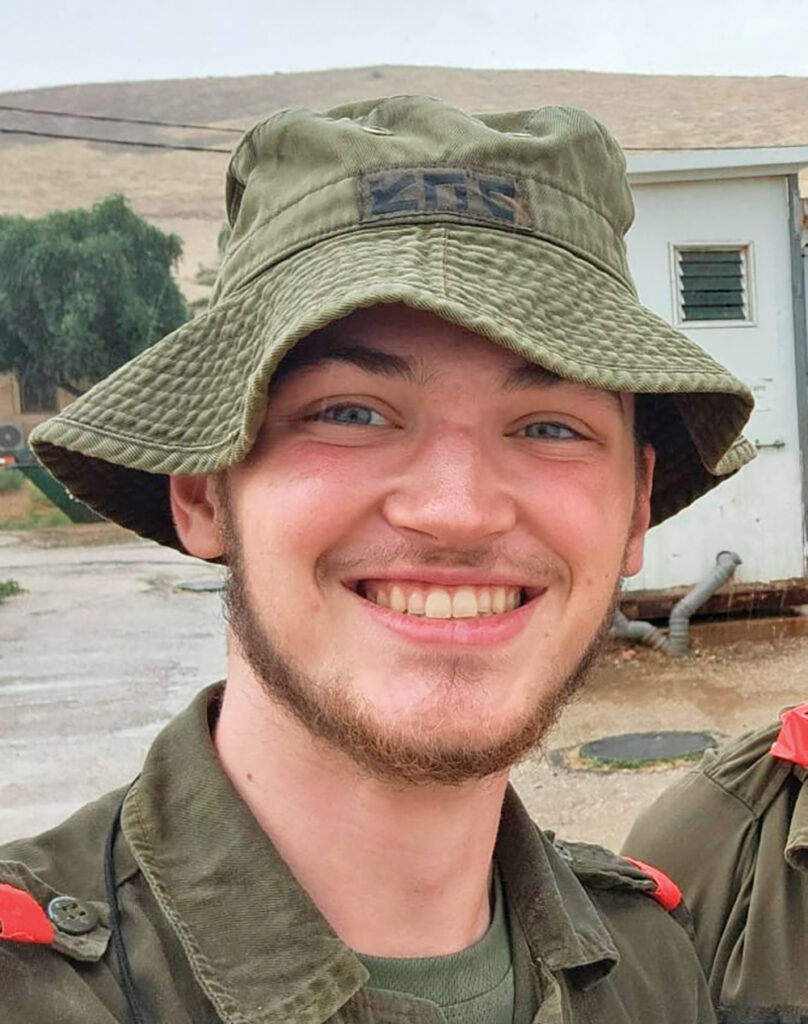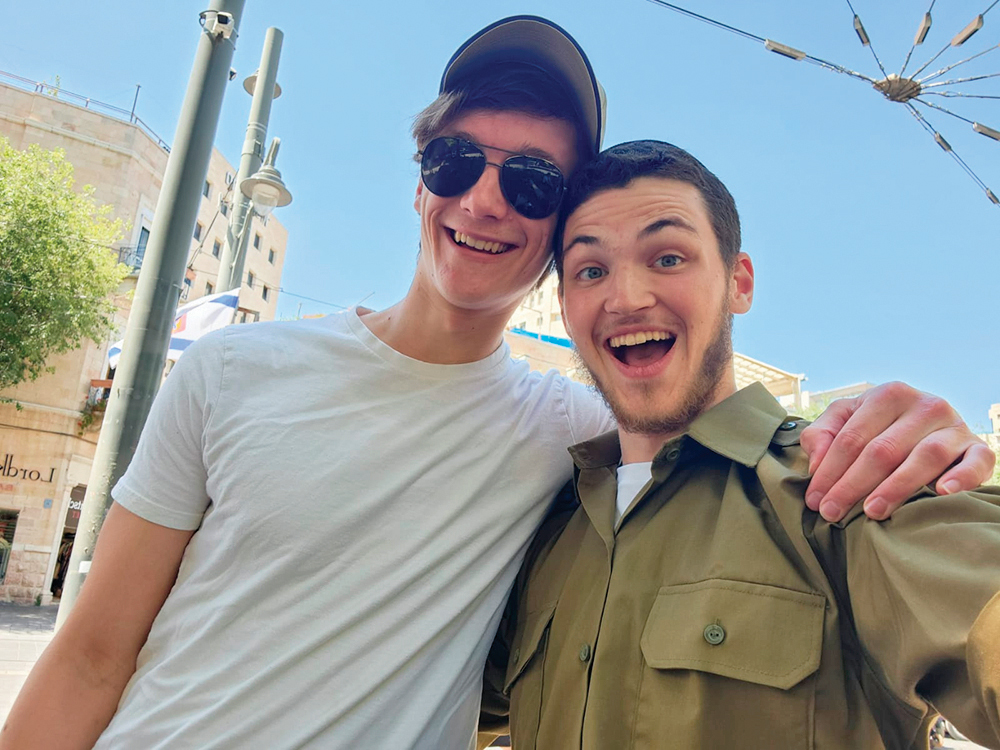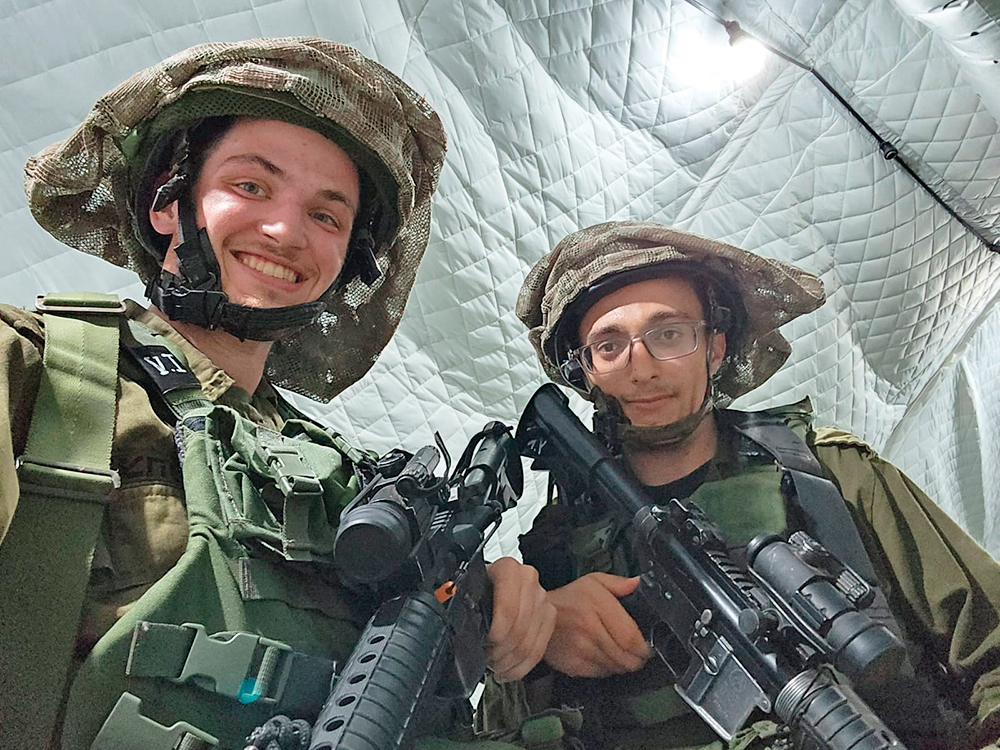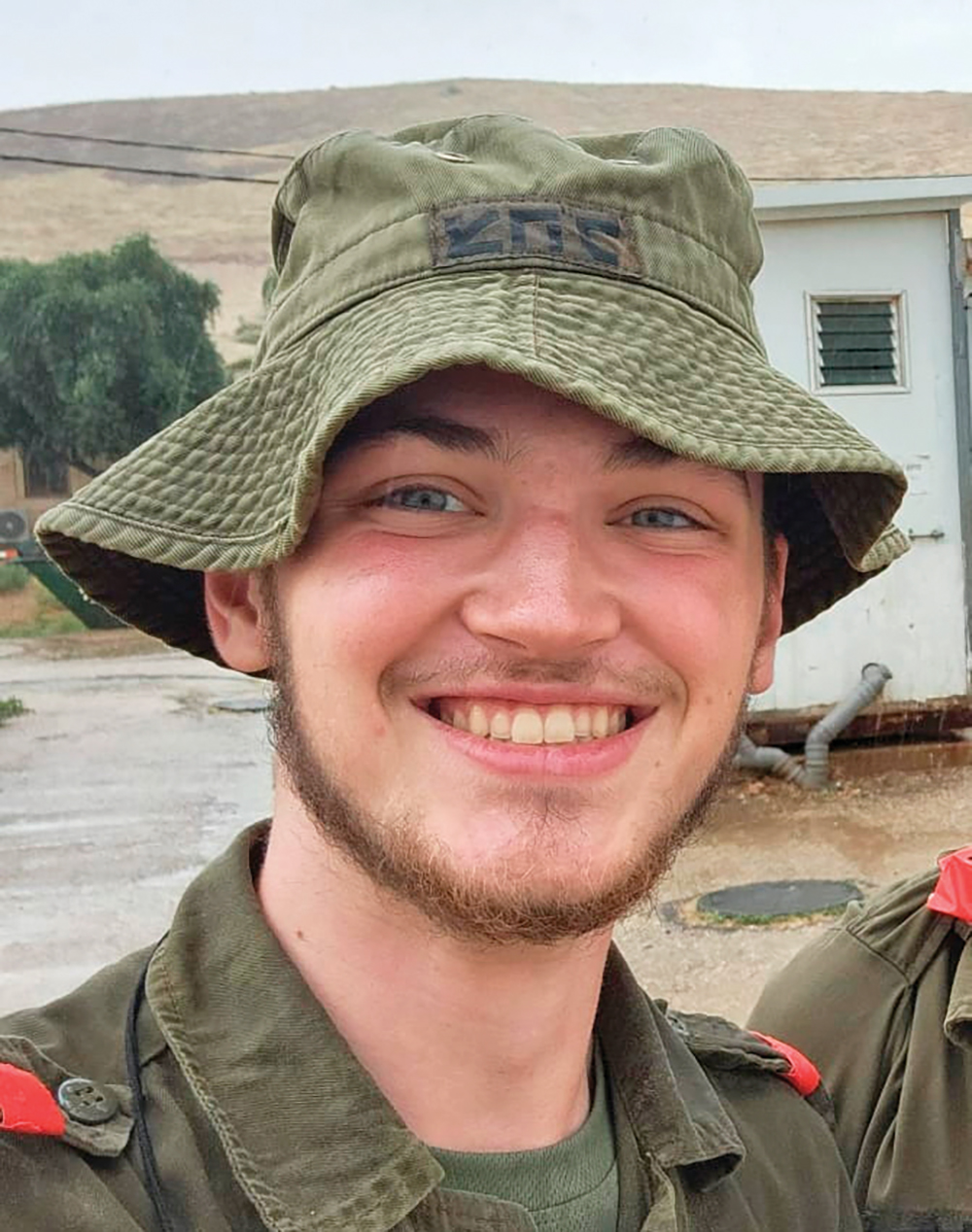
“I’m going to the army … unless a war breaks out.” That’s about what Eliyah Avishur told me last summer in Teaneck. It seemed an innocent comment at the time, but how could he have known that just months later, Israel would find itself in one of its largest conflicts ever.
Avishur, originally from Los Angeles but living in Teaneck since he was 9, attended Yeshivat Hesder Lev HaTorah for shana alef and bet before enlisting in the Kfir Infantry Brigade of the IDF through the yeshiva’s Lev LaChayal lone soldier program.
Asked when he made the decision to draft, Avishur said, “I think it started around the middle of senior year of high school. I had considered it briefly before then, but I never really wanted to do it for real because I was a little scared and immature. And then somewhere through senior year, I realized I wasn’t going to just sit and continue life on the easy path and I wanted to help people more than just going to college and focusing on myself. So once I decided that I wanted to help people, then I looked into drafting.”

On Simchat Torah, Oct. 7, tragedy struck as Hamas terrorists stormed into Israeli towns bordering Gaza and killed 1,200 people. Avishur was still in shana bet in the yeshiva and had not yet committed to drafting, but the attack and war that followed did not deter him from his goal.
Discussing the impact this event had on his decision, Avishur related, “At first I was at a crossroads. I didn’t know what to do. Because my mom is telling me that she’s a little bit scared. But I think what secured it for me is that you see these guys and you’re in the beit midrash together with them and they learn the same as you and they do the same things that you do, and then they all leave in the middle of Simchat Torah and you’re there dancing alone with some of your friends. And Am Yisrael really came together and people were trying to do as much as they possibly could. So if I’m here and I’m taking advantage of all the things that Israel has to offer me, and I’m part of the Jewish people together with them, then I also want to give the maximum that I can give.”
Now about three months into his training, Avishur described his experience compared to his expectations going in. “It’s interesting because it’s both easier and harder, as in physically it’s much more draining than you [would] ever expect, but also what’s easier about it is that you don’t get a choice. It’s not like, ‘Oh, should I get up in the morning? I don’t feel good, whatever,’ but you have to. It really makes it so much easier to swallow. But, [and] this is the more important section, definitely what I didn’t expect is how friendly people are. It’s really crazy, especially being an American who doesn’t speak Hebrew so well. Every single person in the army, even the people not in my machlaka (platoon), even the people who are not religious, you feel like you’re brothers with everyone there because you’re all there for a single purpose and that’s to help the Jewish people. A lot of teenagers, especially, I’m with a bunch of 18-, 19- and 20-year-olds, generally we’re pretty selfish but when you put them into a situation where it’s a growth mindset, it’s remarkable that they’re able to take all the things that they had inside of them that were bad and they’re able to just ignore it, they’re able to say, ‘I don’t need to be selfish right now, I can help this guy out.’”

Touching on the challenges he has faced, Avishur said, “Besides the physical challenges, the thing that’s been difficult for me is to be away from my family a lot. It’s been around nine months since I’ve seen any of my family. And all of my friends are in America right now. Another thing is learning how to stand still and be quiet and kind of internalize what you’re thinking and to push past it, because basically every day there’s going to be a moment where you’re going to be like, ‘I don’t really want to do this’ or ‘this is kind of stupid; this doesn’t make sense,’ and the little voice in your head can ruin everything for you. It’s all about your mindset, so that’s definitely been a challenge to try and achieve that, but I’m on my way hopefully, thank God.”
Don’t ask Avishur if he has any regrets, though. When questioned on his happiness with his decision, he responded, “I think you know the answer, and the answer is yes, a million percent.” Reflecting on his growth, Avishur stated that the army has “helped me grow immensely, not only physically, but hugely mentally. I feel like I’ve become much more mature. I value my life and my time much more, especially since you’re always on the clock in the army. … You come to appreciate every minute and every second that you have. I’m very personally happy with it and I think that it’s probably the best decision I’ve ever made and probably will remain the best decision I’ve ever made for a long time.”
Asked about his message for Am Yisrael and the American Jewish community specifically, Avishur concluded, “For the people who are not interested in moving to Israel, bring whatever ruach, whatever happiness and whatever meaning you can to your communities. I know I see a trend, especially after COVID, the shuls are quiet a little bit and sometimes [in] Kabbalat Shabbat, people aren’t singing or people aren’t so into it. So I think that’s something we need a little bit in the American Jewish community, some excitement. The main thing is to love your Judaism, to love what you do and to be passionate about it.”
Avishur also emphasized the importance of aliyah: “My second message is that everyone should come over here, please, because we need you. It’s not only that we need you, it’s that you need us. There’s a movement now, young people are more interested in moving here, and full-fledged families are definitely interested in coming here now more than ever. The room for growth here is immense in many, many ways. You have immense room for growth in Judaism, in happiness in life, in fulfillment, and in building and being part of Am Yisrael.”
Explaining his charge to make aliyah, Avishur noted, “The whole Torah and the whole reason we exist as Jews is because of the land of Israel. Everything that surrounds the Jewish people is about Mashiach and Israel. The whole process of being here and being a part of the geula process is as a means to get to Israel. And, you know, ‘ein lecha ketz meguleh mizeh’ (there is no sign of redemption clearer than this), the land producing fruits (Sanhedrin 98a with Rashi)], like I’m eating the fruits in Israel and they didn’t exist 100 years ago, and that’s just a siman. The real reason why we’re here is because the Jewish people are here and we’re thriving. That should be a way bigger siman. The main thing is to move forward. Don’t stagnate. Don’t settle. Love what you do. Be passionate. Move forward. What’s the next thing? How can I help? And the way to do that is in Israel and with the Jewish people here.”
Daniel Brauner is a summer intern at The Jewish Link. He is an incoming student at Yeshiva University and lives in Teaneck.










